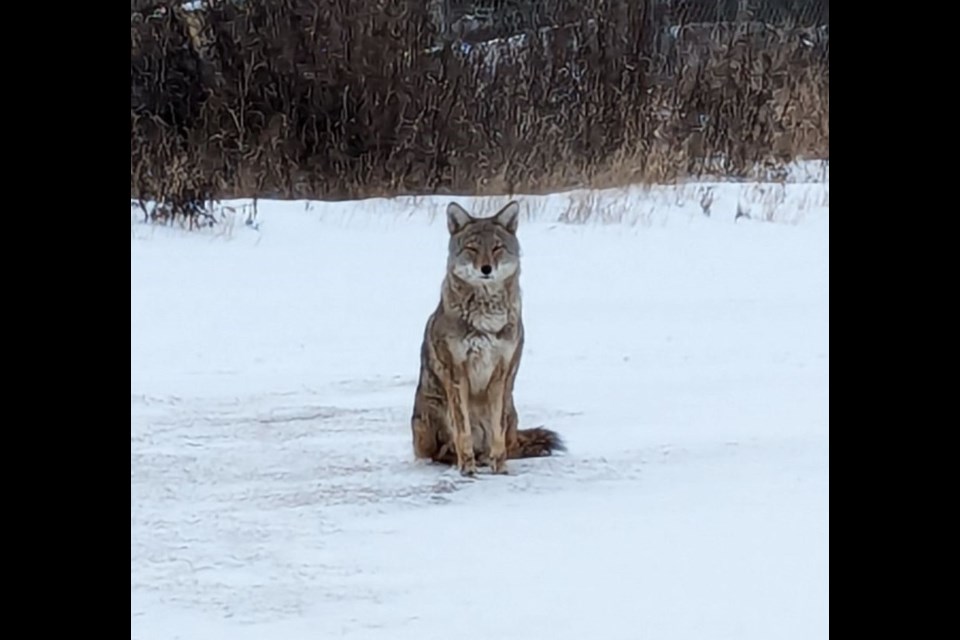THUNDER BAY — A city woman is raising the alarm after repeatedly witnessing people bringing food to coyotes on the Thunder Bay waterfront.
The animals, which have attacked humans on occasion in other parts of Canada, have become more common in the city in recent years.
Last September, one was spotted pursuing and killing a deer in the yard of St. Margaret School on Clayte Street.
There have been frequent sightings all over the city this winter, including along the shoreline from Mission Island to Current River.
That's where a local resident has been alarmed by the behaviour of individuals who feel it's alright to give food to the animals.
"A week ago I saw a gentleman down there who was putting a couple of bones on the ice. Then, about four days ago, a lady got out of her truck and she had a bag of moose bones. The coyote started coming toward her off the ice," the woman told TBnewswatch in an interview.
"People are actually sitting there and waiting for them to show up. And when the coyotes see people, they're coming up to them . . . As soon as they see somebody and they think you've got something, they're coming towards you. They're not an animal to fool around with."
She worries that because of the number of people taking their dogs for walks along the waterfront, "sooner or later something's going to happen."
The woman said she's also concerned that coyotes will have to be put down because people have taught them it's safe to get close.
The Ministry of Natural Resources and Forestry says the animals should never be touched or approached.
In the wild, they are usually wary of human contact, but feeding them can habituate them to people and make them less fearful.
The City of Thunder Bay's licensing and enforcement division is stepping up its patrols along the waterfront after recently receiving a complaint about people violating the by-law that prohibits feeding wildlife other than birds.
"I think we've had about 10 patrols in the particular area. The officers will continue, on their regular duties, to be in that area now and to be more visible," said manager Doug Vincent.
"The issue is [coyotes] are getting quite tame and coming up and approaching people, and some might not want to be approached by animals. Certainly, it's not a desirable situation . . . That's not good if you've got your grandkids there, or if young kids are playing."
Vincent said anyone found feeding wild animals in the city is subject to a court summons and a fine of up to $5,000 under the Provincial Offences Act.
